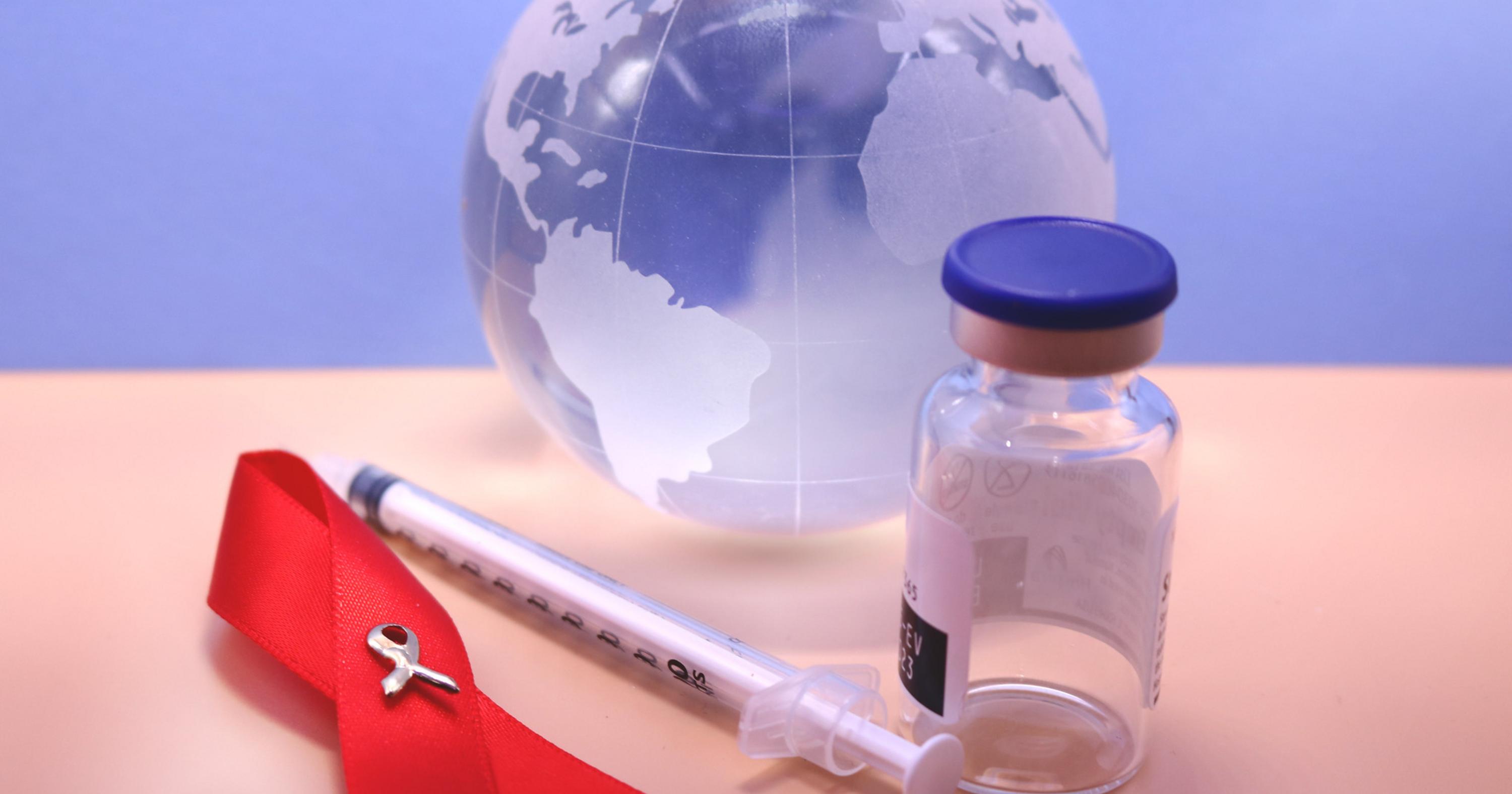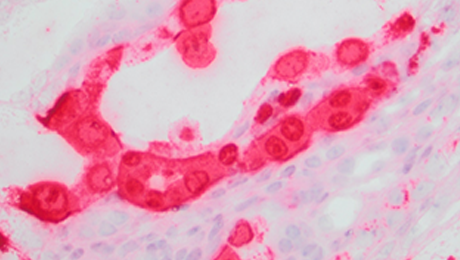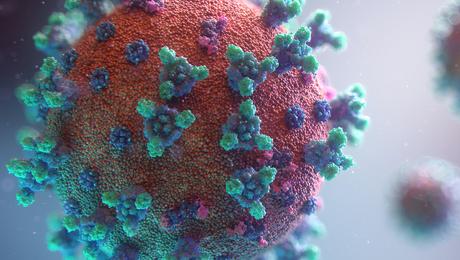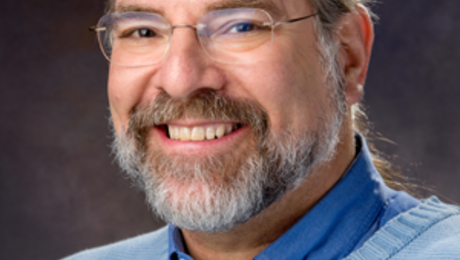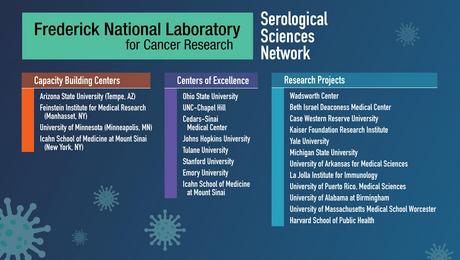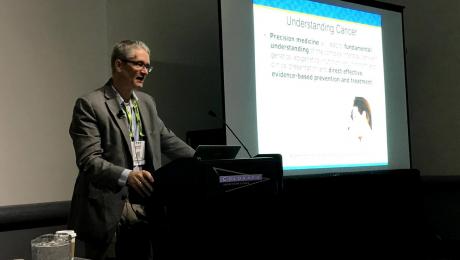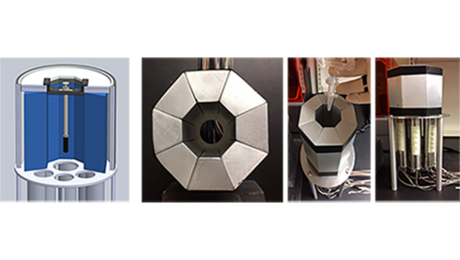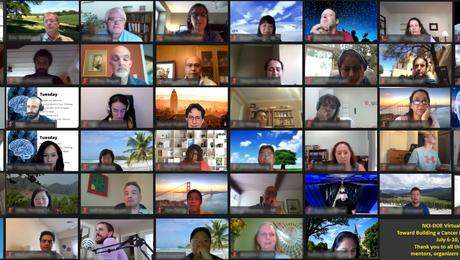All News
Coronavirus protein ‘shakes off’ some antibodies by changing shape
Posted 12/15/2020A new study suggests that part of the SARS-CoV-2 virus shifts its shape based on its surroundings, throwing off potentially protective antibodies that might prevent it from causing COVID-19.
The shapeshifting rids the coronavirus of certain antibodies that attach to it, say the study’s authors, who are based at the Vaccine Research Center of the National Institute of…
FNL’s capstone partnership with Georgetown provides student training opportunity
Posted 12/6/2020As a national laboratory, the Frederick National Laboratory for Cancer Research (FNL) is committed to supporting the next generation of biomedical researchers—a generation for which data science skills are becoming increasingly critical.
Mark Jensen, Ph.D.
Fuyuan Wang
To that end, the FNL signed a trainee affiliation agreement with Georgetown University to…
FNL team raises awareness of mouse kidney virus affecting research reproducibility
Laboratory Animal Sciences ProgramPosted 12/3/2020
Kidney disease researchers should be on the lookout for a newly described mouse virus that appears to be relatively common and could affect the reproducibility of research involving mice that are infected but show no symptoms, according to a new study.
“Turns out, this virus is common in wild mice and research colonies around the world and produces persistent…
Scientists explore how the immune system ‘trains’ itself during a COVID-19 infection
Posted 12/1/2020It’s war. Invaders are afoot. Vigilant sentries spot them, signal for reinforcements, unite with other nearby sentries, and charge into battle. Soon, the “big guns” arrive, a squadron of well-armed, well-trained soldiers who strike deep into the invaders’ ranks.
This drama unfolds on a cellular and subcellular battlefield. It’s the immune system’s response to a SARS-CoV-2…
Dr. Jeffrey Lifson elected AAAS fellow
Jeffrey Lifson, M.D.Posted 11/29/2020
Jeff Lifson, M.D., has been elected a fellow of the American Association for the Advancement of Science (AAAS), joining 488 of his AAAS colleagues to be honored this year for their extraordinary achievements in advancing science.
The new fellows were formally announced in the AAAS News & Notes section of the journal Science on Nov. 27. An induction ceremony for…
Serological Sciences Network to bolster understanding of COVID-19 immune response
Serological Sciences NetworkPosted 11/16/2020The National Cancer Institute (NCI) is leveraging the serological sciences expertise of the Frederick National Laboratory for Cancer Research (FNL) to address the COVID-19 pandemic through a new effort launched last month.
The Serological Sciences Network, or SeroNet, is a collaboration across 25 biomedical research institutions to enhance understanding of the immune…
Sixth annual interdisciplinary workshop focuses on high performance computing, cancer research, and COVID-19
Cancer Data Science Initiatives, Seventh Computational Approaches for Cancer Workshop (CAFCW21)Posted 11/10/2020The Computational Approaches for Cancer Workshop at SC20 fosters collaborations and future innovations to better understand, diagnose, treat, and prevent cancer.
On Nov. 13, clinicians, cancer biologists, mathematicians, computational scientists, biomedical engineers and data scientists worldwide will participate in the Sixth Computational Approaches for Cancer Workshop (…
Ruth Nussinov elected fellow of American Physical Society
Ruth Nussinov, Ph.D. , Basic Science ProgramPosted 11/5/2020Ruth Nussinov, Ph.D. says her election as a 2020 American Physical Society fellow is an especially gratifying recognition and for a very basic reason: “I am not a physicist.”
But her contribution to the field of biophysics and “extraordinary advancements in scientific understanding” led the APS’s Division of Biological Physics to nominate Nussinov as a society fellow.…
Frederick National Laboratory invention fills a gap with precise radiation measuring tool
Posted 11/3/2020When physicist Stephen Adler, Ph.D., joined the Frederick National Laboratory for Cancer Research (FNL), he quickly observed a gap in the tools to measure radiation doses in preclinical research.
Precise radiation doses are critical for many preclinical experiments with small animal models—doses which are typically in the few microcuries (µCi) range. However, when Adler…
Digital twin ideas lab: Innovative, cross-disciplinary research and a roadmap
Posted 10/21/2020A cancer patient’s “digital twin” would be the ideal resource for personalized treatment, and creating the technology stands as a grand challenge for the convergence of advanced computing technologies and oncology.
A digital twin is a computer replica of the systems and processes needed to run simulations without disrupting or harming the real-world object.
On July 6…


